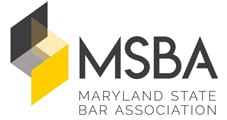For individuals and some businesses, chapter 7 bankruptcy may be their best option for a fresh start. Referred to as the “liquidation” bankruptcy type, chapter 7 involves the debtor giving up significant assets. These assets are then distributed and sold and the money divided out to the debtor’s various creditors. To qualify for chapter 7 bankruptcy, you must first complete and file the means test forms.
Generally, the purpose of the means test is to separate those debtors who may have the ability to pay back some of their debt and those who are simply overwhelmed.
The means test forms will require information from you regarding matters like:
- Your monthly income
- Marital status
- Your spouse’s monthly income
- Dependents considered in tax deductions
- Pension and retirement income
- Interest, royalties and dividends
- Income from properties
The United States Bankruptcy Court will then review this information and determine your eligibility for chapter 7. Should the court find that you have enough money to pay off some of your debt, it is possible you will not qualify for chapter 7.
What if I do not qualify for chapter 7 bankruptcy?
If you do not qualify for chapter 7, you may need to file for chapter 13 bankruptcy. In the case of chapter 13 bankruptcy, you may keep some of your assets but you are required to pay off some of your debt within a three to five-year timeframe.






